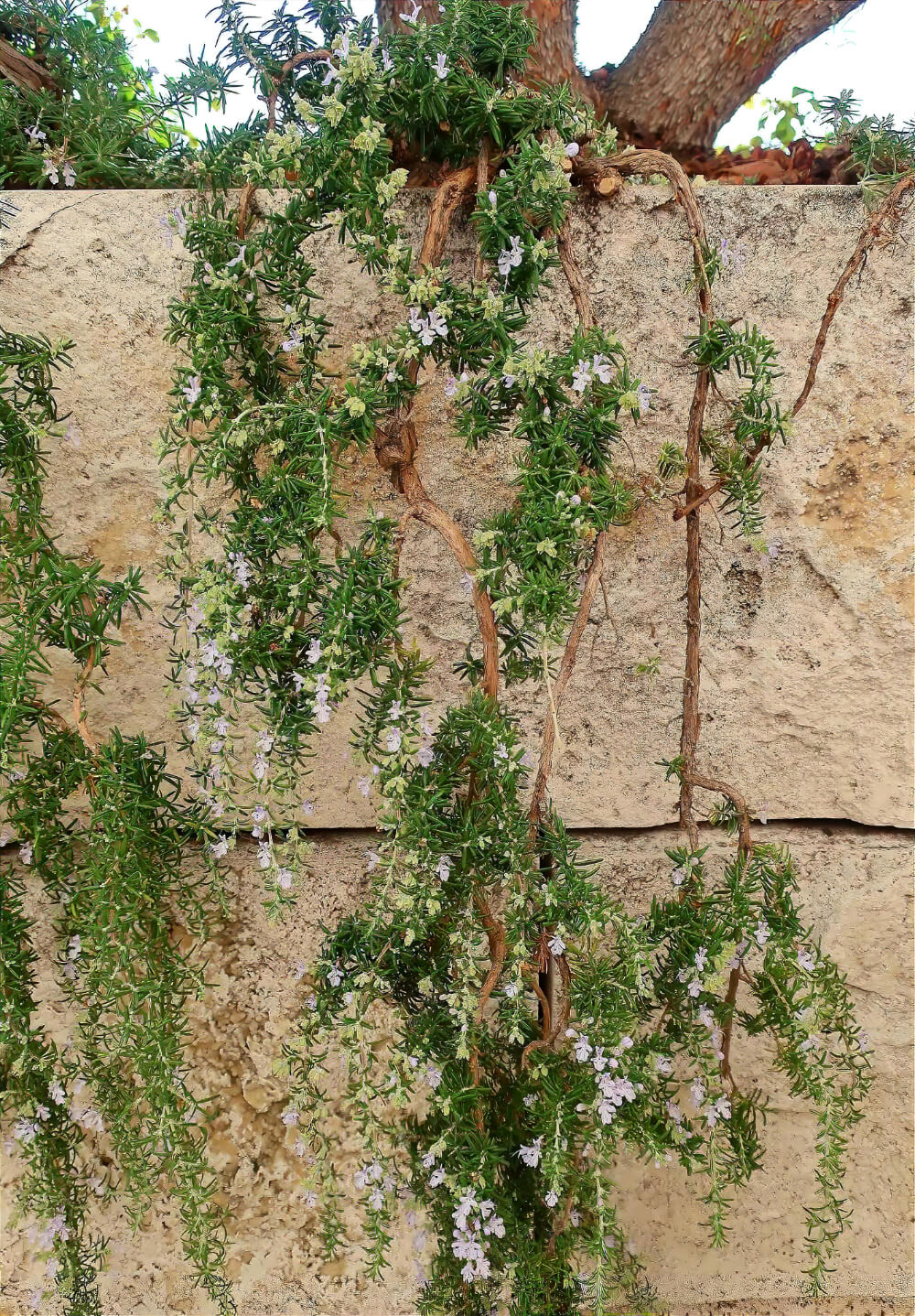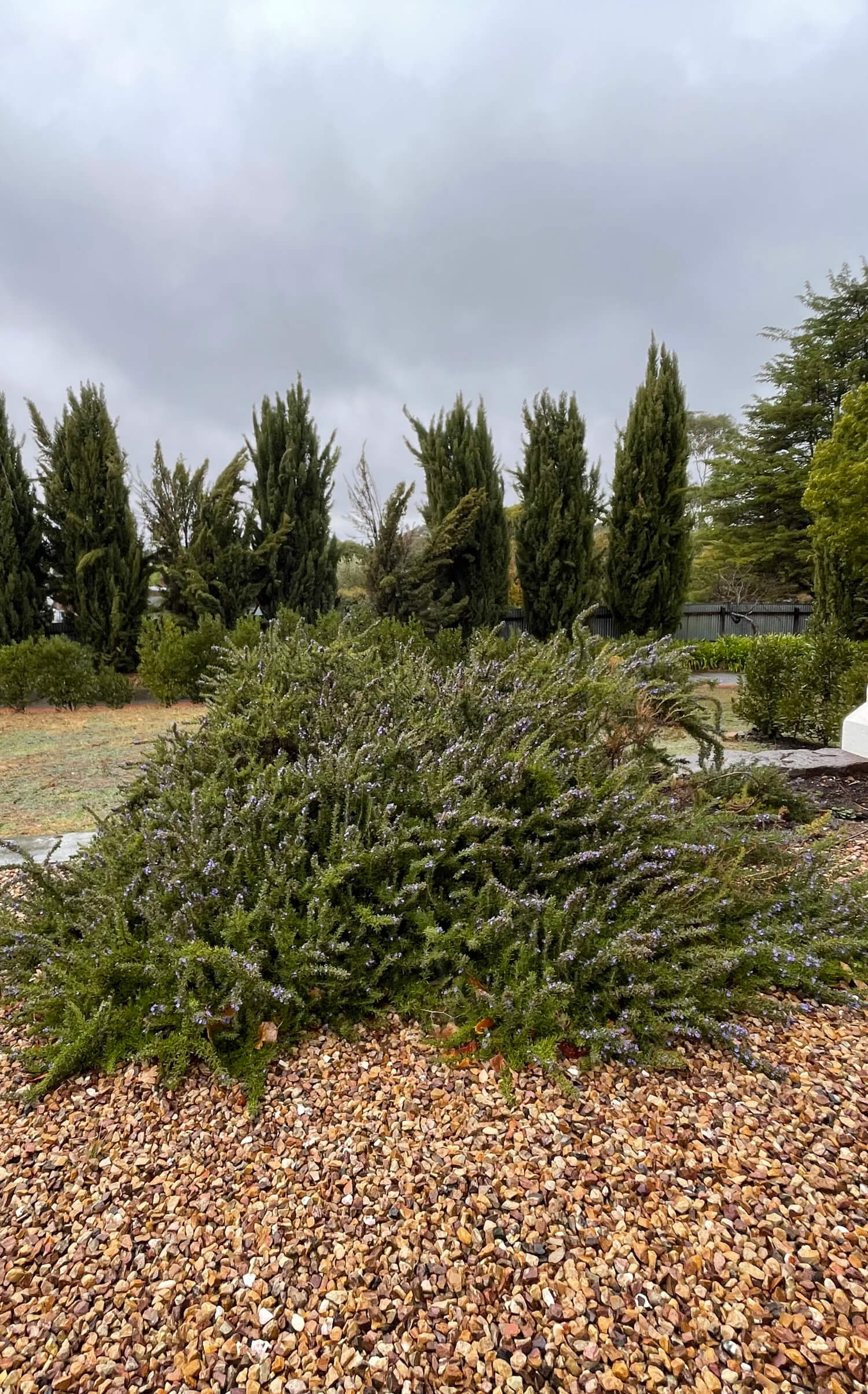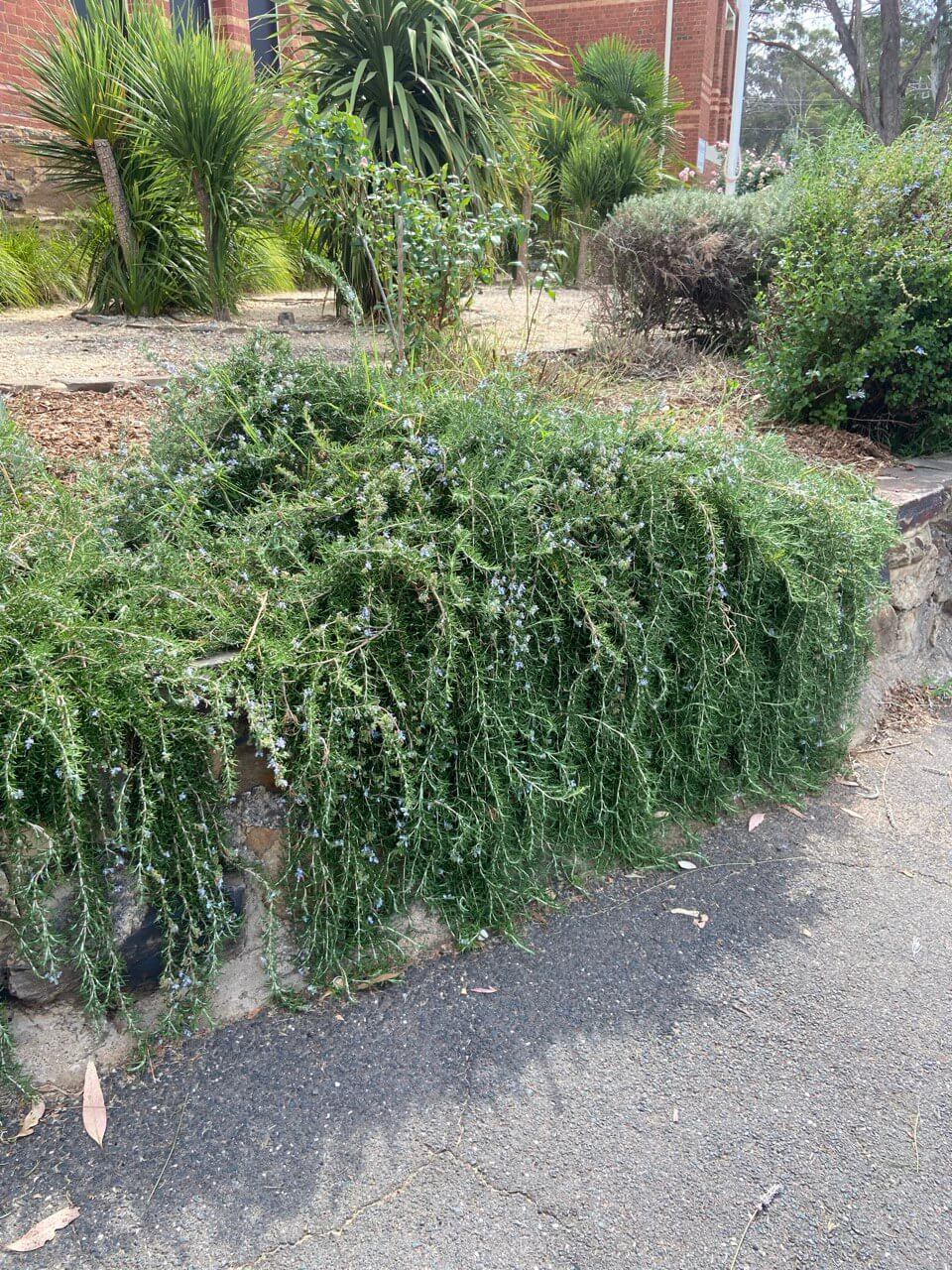



PROSTRATE ROSEMARY
Salvia rosmarinus 'Prostratus'
Prostrate Rosemary is a dense shrub with pretty blue flowers. It's a ground cover and a terrific cascading plant.
We think it looks great falling over walls and rocks.
It loves groups, mass planting, and wide containers.
The needles are an attractive contrast to other plants and of course Rosemary is an edible and is bee and butterfly attracting.
Prostrate Rosemary is a low-growing variety of rosemary with a spreading habit. It's prized for its aromatic leaves and beautiful blue flowers. It's excellent for cascading over walls or as a ground cover.
It's suitable for rockeries, borders, and containers.
Prostrate Rosemary thrives in well-drained soil and sunny locations. It is drought-tolerant once established.
The leaves can be used for culinary purposes, adding flavor to various dishes.
Prostrate Rosemary produces small, delicate blue flowers that attract pollinators.
Prostrate Rosemary is a hardy, low-maintenance plant that adds beauty and fragrance to any garden.
It has a trailing habit and prefers full sun.
Plant in well-drained soil. It's relatively drought-tolerant.
It's commonly used in cooking and also has ornamental value.
PRICE: $6.00
SIZE: 5cm radius seedling
PURCHASE: From Phil at the Maldon, Castlemaine, and Wesley Hill Markets
Prostrate Rosemary
Salvia rosmarinus 'Prostratus'
Australian History
Rosemary, (Salvia rosmarinus), is native to the Mediterranean region and was introduced to Australia with European settlement. It has become a popular garden plant throughout the country.
Australian Uses
In Australia, Prostrate Rosemary is widely used as an ornamental plant in gardens and landscaping. Its fragrant leaves are also used in cooking to flavor various dishes, particularly meats and vegetables.
Australian Growing Guide
Prostrate Rosemary thrives in well-drained soil and full sun in Australia. It is relatively drought-tolerant and requires minimal watering once established. It can be propagated from cuttings.
Australian Landscaping
Prostrate Rosemary is ideal for use as a ground cover, in rockeries, cascading over walls, and in containers. Its low-maintenance nature makes it a popular choice for Australian gardens.
Australian Companion Plants
Prostrate Rosemary pairs well with other Mediterranean herbs like lavender and thyme, as well as drought-tolerant plants.
Australian Disease Resistance
Prostrate Rosemary is generally disease-resistant, but it's important to ensure good drainage to prevent root rot.
